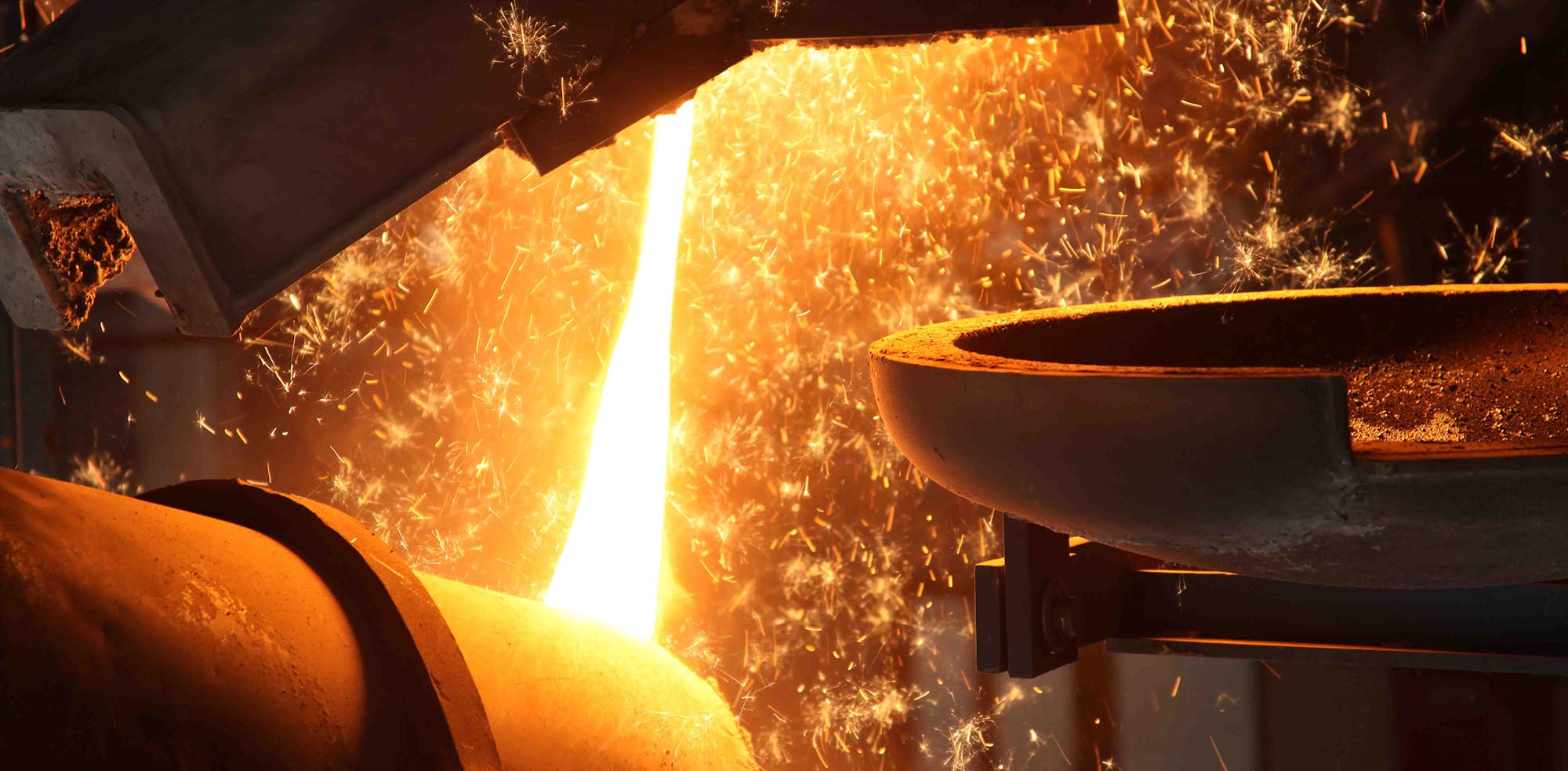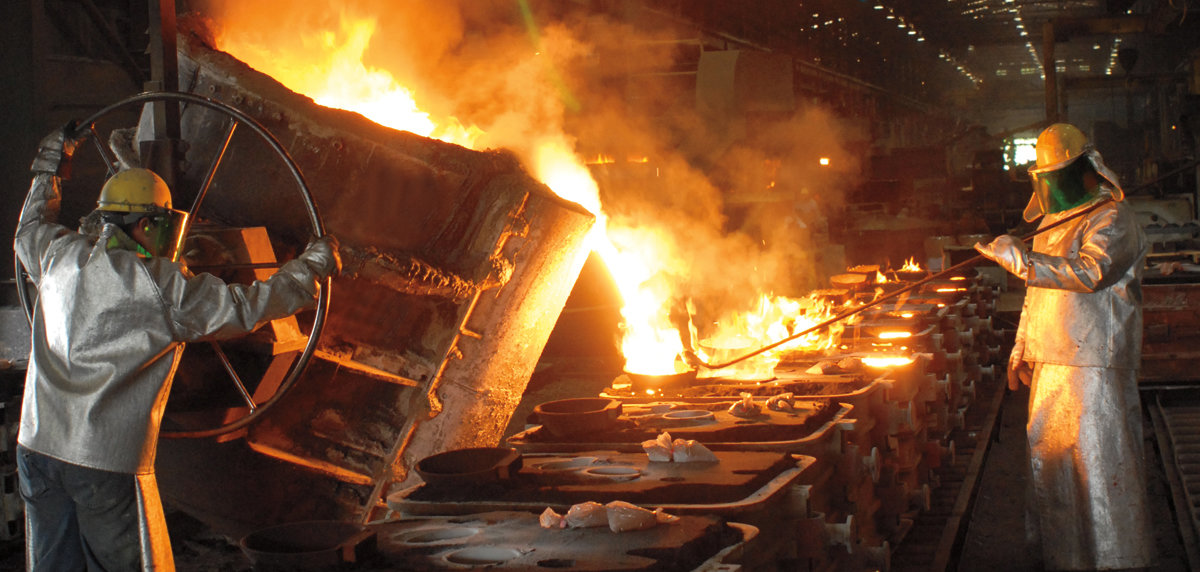The future of Metal Casting every engineer should know about
Discover the Ingenious Techniques Utilized in a Metal Foundry for Superior Casting Outcomes
In today's affordable manufacturing landscape, metal foundries are increasingly adopting cutting-edge methods to boost casting results - Aluminum Casting. Advanced computer system simulations allow for precise modeling of molten metal actions, while 3D printing allows rapid production of intricate mold and mildews. Additionally, eco-friendly materials and automation streamline operations. These developments promise substantial enhancements in performance and top quality control. Nonetheless, the impact of these innovations on sustainability and manufacturing practices remains to be totally discovered
Advanced Computer System Simulations in Metal Casting
Advanced computer simulations have reinvented the metal spreading process by improving accuracy and effectiveness. These innovative devices enable engineers to produce online designs of cast elements, allowing them to examine and forecast the habits of molten metal throughout the casting phase. By mimicing various specifications such as temperature level, circulation price, and cooling rates, producers can determine potential defects prior to physical manufacturing starts.
This aggressive strategy minimizes waste and decreases pricey errors, ultimately causing boosted product high quality. In addition, simulations assist in the optimization of mold and mildew styles, ensuring that they satisfy the certain needs of each job. The combination of computational liquid characteristics (CFD) and limited aspect evaluation (FEA) more adds to the precision of these simulations, giving understandings that were formerly unattainable. As a result, advanced computer simulations have become an essential component of modern-day metal foundries, significantly progressing the industry's capacities.
3D Printing for Molds and Patterns
3D printing has arised as a groundbreaking strategy for developing molds and patterns in the metal foundry sector. This technology enables the fast manufacturing of intricate geometries that conventional production approaches battle to accomplish. By utilizing additive manufacturing, foundries can create intricate designs with reduced lead times and material waste. The capacity to create molds as needed allows for better adaptability in layout versions, assisting in faster prototyping and adjustments.
Additionally, 3D printing can utilize a range of products, including steels and plastics, customized to details casting demands. This flexibility boosts the accuracy of molds, causing remarkable casting results with improved surface area coatings. In addition, the decrease in the variety of components called for simplifies assembly processes, additionally enhancing manufacturing efficiency. As foundries continue to take on 3D printing, they are positioned to redefine market standards, leading the way for development and boosted productivity in metal spreading operations.
Eco-Friendly Products and Processes
As the metal foundry market encounters enhancing stress to reduce its ecological impact, the fostering of environment-friendly materials and procedures has come to be crucial. Factories are now exploring lasting alternatives to traditional products, such as using bio-based binders and recycled steels. These products not only minimize waste yet also reduced energy intake during production.
Furthermore, advancements in sand casting methods have actually brought about using artificial sands that are much less hazardous to the atmosphere. Factories are additionally implementing innovative processes like molten metal treatment that decreases discharges and boosts the high quality of actors products.
Water-based finishes have changed poisonous solvents, promoting a much safer job setting. By incorporating these environmentally friendly techniques, metal foundries can noticeably lower their ecological impact while preserving high-grade casting outcomes. This change not just benefits the environment but additionally straightens with the growing consumer demand for sustainable manufacturing services
Automation and Robotics in Foundry Operations
While the metal foundry market embraces innovation, the assimilation of automation and robotics is changing operations significantly. Automated systems streamline processes such as mold production, metal pouring, and casting finishing, greatly boosting effectiveness. Robotics help with the handling of hefty products, decreasing the risk of office injuries and making sure much safer atmospheres.

Additionally, using automated led cars (AGVs) enhances material transportation within facilities, making sure prompt delivery of elements to proper workstations. By implementing these modern technologies, foundries can adapt to changing demands with higher dexterity, ultimately causing improved earnings and competition in the marketplace. As automation and robotics Aluminum Foundry remain to develop, they hold the potential to redefine standard foundry methods and drive further innovations in casting strategies.
Real-Time Monitoring and Quality Assurance Techniques
The innovations in automation and robotics have led the way for extra sophisticated methods to quality control in metal foundries. Real-time surveillance systems utilize advanced sensors and data analytics to track important criteria throughout the spreading process. These systems continually analyze variables such as stress, product, and temperature level make-up, allowing instant detection of discrepancies from established requirements.
Quality control techniques currently integrate device knowing algorithms that assess historic information to anticipate potential defects prior to they happen. This proactive approach lessens waste and boosts total manufacturing efficiency. In addition, incorporated feedback loopholes enable quick modifications, making sure that each casting meets stringent top quality demands.
The application of electronic twins-- virtual reproductions of physical possessions-- has also revolutionized quality control, permitting designers to mimic and maximize procedures in real-time. Together, these cutting-edge techniques significantly boost the dependability and top quality of castings, establishing new market standards in metal foundry procedures.
Often Asked Inquiries
What Kinds of Metals Are Frequently Cast in Foundries?
Commonly cast metals in foundries include light weight aluminum, iron, bronze, and brass. Each metal shows one-of-a-kind properties, making them suitable for numerous applications, such as auto parts, equipment, and artistic sculptures, improving their flexibility in production.

How much time Does the Casting Refine Generally Take?
The casting procedure commonly takes several hours to days, depending on aspects such as the intricacy of the mold and mildew, kind of metal used, and cooling demands. Each stage affects the total period markedly.
What Precaution Remain In Location for Foundry Employees?

Exactly how Are Problems in Castings Identified and Addressed?
Defects in spreadings are identified via visual inspections and non-destructive screening approaches. Once found, foundry workers resolve them by fine-tuning procedures, changing product compositions, and implementing rehabilitative steps to assure high quality and conformity with requirements.
What Is the Price Range for Metal Casting Services?
The price variety for metal spreading services typically differs in between $1 to $10 per pound, depending on aspects such as material kind, intricacy of the style, and manufacturing volume, affecting total pricing substantially.
In today's competitive manufacturing landscape, metal foundries are significantly adopting cutting-edge techniques to improve spreading outcomes. As the metal foundry industry deals with increasing pressure to minimize its ecological footprint, the adoption of eco-friendly materials and procedures has actually come to be important. Factories are now exploring lasting alternatives to conventional materials, such as making use of bio-based binders and recycled metals. By integrating these eco-friendly practices, metal foundries can considerably decrease their ecological impact while maintaining premium casting outcomes. The improvements in automation and robotics have actually led the means for more sophisticated methods to high quality guarantee in metal foundries.